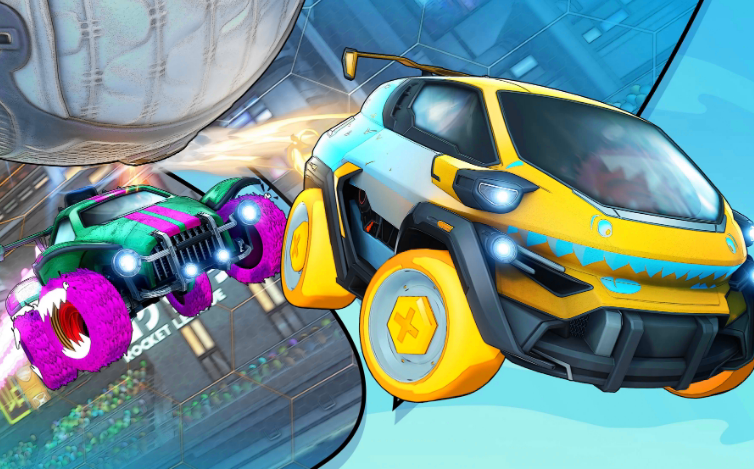Rocket League is a fast-paced and exciting game that combines soccer with high-flying acrobatics and vehicular mayhem. If you're new to the game, it can be challenging to understand the basics of gameplay. Here's a beginner's guide to Rocket League gameplay.

Objective: The objective of Rocket League is to score more goals than your opponent by hitting a ball into their goal using a rocket-powered car.
Controls: The controls for Rocket League are relatively simple, with players using a combination of steering, acceleration, and jumping to control their cars. The game also features a boost system that allows players to speed up their cars or make more significant jumps.
Gameplay Modes: Rocket League offers several gameplay modes, including 1v1, 2v2, 3v3, and 4v4. Each mode offers a different challenge and requires a different strategy.
Strategy: To be successful in Rocket League, you need to develop a strategy that balances offense and defense. This includes positioning yourself in the right spots on the field, making accurate passes and shots, and defending your goal against your opponent's attacks.
Customizations: Rocket League offers a wide range of customizations, including different cars, decals, wheels, and boost trails. These customizations allow players to express their unique style and improve their gameplay experience.
By understanding these basic concepts of Rocket League gameplay, you'll be well on your way to enjoying the game and improving your skills.
If you're looking to take your Rocket League gameplay to the next level, you'll need to master some advanced techniques and strategies. Here are some tips and tricks for dominating the field:
Aerial Maneuvers: One of the most challenging and rewarding aspects of Rocket League gameplay is aerial maneuvers. Practice using the double-jump and boost system to fly through the air and make impressive shots and passes.
Ball Control: Maintaining control of the ball is essential in Rocket League. Practice using your car's hitbox to make accurate touches and keep the ball moving in the direction you want.
Positioning: Positioning is critical in Rocket League, and knowing where to be on the field can make all the difference. Pay attention to your teammates' positions and focus on playing off each other's strengths.
Boost Management: Boost is a valuable resource in Rocket League, and managing it effectively is essential. Make sure to pick up boost canisters as often as possible and use your boost wisely to maintain speed and make critical plays.
Mindset: Finally, your mindset can have a significant impact on your Rocket League gameplay. Stay calm under pressure, focus on your goals, and learn from your mistakes to improve your gameplay experience.
By mastering these advanced techniques and strategies, you'll be well on your way to dominating the Rocket League field.
Rocket League was initially released as a fun and casual game in 2015, but it quickly gained a massive following due to its unique combination of soccer and high-speed vehicular action. However, it wasn't until several years later that Rocket League emerged as a competitive esports title. Here's a look at the evolution of Rocket League gameplay as a competitive sport:
Early Competitive Scene: Rocket League's competitive scene began to emerge in 2016 with the introduction of the RLCS (Rocket League Championship Series). This allowed players to compete in organized tournaments and earn prize money.
Growing Popularity: As the RLCS continued to grow in popularity, Rocket League began to attract more attention from esports fans and organizations. This led to the creation of new leagues and tournaments, including the Rocket League Rival Series and the Rocket League Championship Series World Championship.
Professional Teams: With the growth of Rocket League esports, professional teams began to emerge, with players signing contracts and competing full-time. This helped to legitimize Rocket League as a competitive sport and attract even more attention from fans and organizations.
Spectator Experience: To support Rocket League's growing competitive scene, Psyonix (the developer of Rocket League) introduced several new features to improve the spectator experience, including a replay system, enhanced camera options, and in-game statistics.
Mainstream Recognition: In recent years, Rocket League has gained even more recognition as a competitive sport, with major organizations and sponsors investing in the game. This has led to increased prize pools, more significant tournaments, and even television coverage.